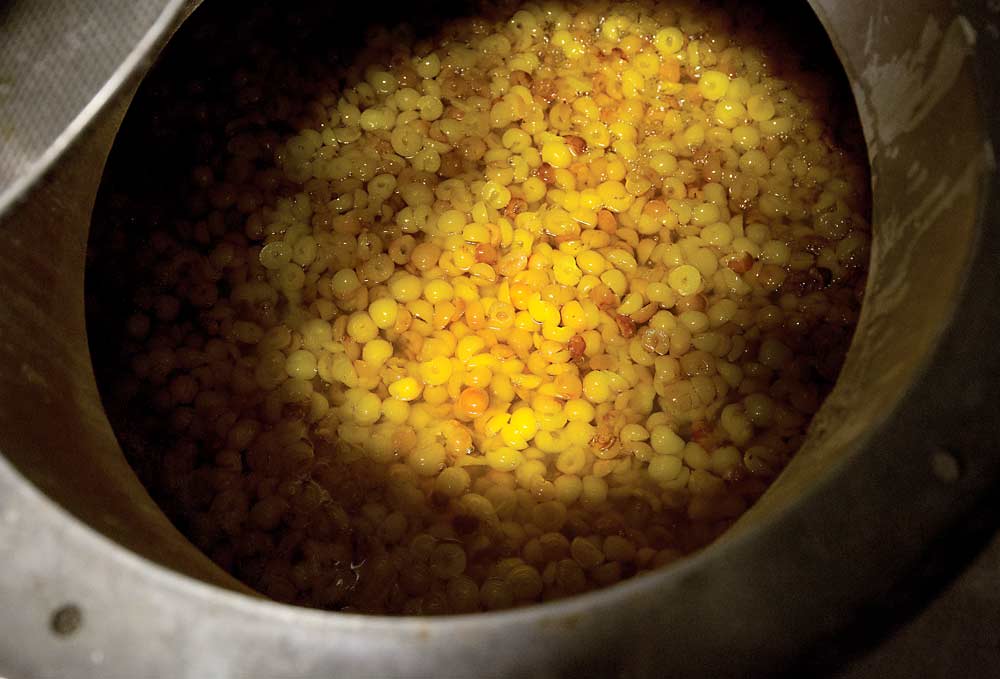
Consolidation amongst processing sweet cherry buyers in the last few years has reshaped the market, forcing growers to adjust — especially in Northwest Michigan, where the majority of sweet cherries grown are destined for processing plants.
Between 2016 and 2019, New York-based processor Seneca Foods purchased California maraschino cherry producer Diana Fruit Co. and acquired the maraschino cherry arm of Michigan’s Burnette Foods Inc. and the candied fruit producer Paradise Inc. In 2017, Pacific Coast Producers, another large fruit processor, acquired Oregon Cherry Growers, a cooperative that produces maraschino and frozen cherries. And in 2018, Cherry Growers Inc., a Northwest Michigan cherry processor that had been in business since 1939, closed its doors.
The acquisitions and closures have had an impact across the industry, with many growers reducing their acreage and some getting out of processing sweet cherries altogether. Two years ago, members agreed to stop paying assessments to the National Cherry Growers & Industries Foundation, deciding the cherry industry didn’t need generic promotional support anymore.
The impact has been especially acute in Northwest Michigan, where the majority of the state’s sweet and tart cherries are grown. A combination of cheap imports, pests, diseases, unpredictable weather and consolidating markets has been hitting growers especially hard, said Phil Korson, former president of the Cherry Marketing Institute. Korson was interviewed by Good Fruit Grower magazine last November, before he retired.
It’s a compounding problem: Sweet cherries have always been a way for Northwest Michigan growers to diversify, partially insulating them from the ups and downs of the tart cherry market. But lately, the sweet cherry market has been battered by the same forces that have battered the tart cherry market.
“Most growers here grow sweet and tart cherries, but right now nobody is making money on any of them,” said Nels Veliquette, whose family runs Cherry Ke in Kewadin, Michigan. Add weather, pest and trade issues to all of that, as well as inexpensive Washington apples flooding Eastern markets last fall, and “we’re getting hit on all these different fronts,” he said.
Veliquette said Cherry Ke has been taking out processing sweet cherries for years. They have about 60 acres now, but it’s getting harder and harder to find regular buyers.
Nels’ father, Dean Veliquette, sold brine cherries for 30 years. He hasn’t been focused on that market in the last few years, but he always found it “rough and tumble.” He learned a few hopeful lessons, however.
“There’s always a chance for the little guy to survive,” the senior Veliquette said. “Not everybody likes to buy from the big guy that almost has a monopoly. Price and service are the most important things you need to survive.”
There were three buyers of brine cherries in Northwest Michigan last year, compared to six or seven a few years ago, said Mark Miezio, president of Cherry Bay Orchards. One of the larger growers in the region, and with long-established relationships with buyers, Cherry Bay is still selling processing sweet cherries, but not every grower has been able to do the same. A lot of brine cherry acreage has come out of the ground in the last couple of years. It might be inevitable as consumer tastes shift, but it’s tough to watch, Miezio said.
“It’s been pretty disheartening, what’s going on in cherry production in Northern Michigan,” he said. “Pricing has been tough on everything we’re growing.”
Processors based in Northwest Michigan have taken different approaches to the changing market.
Leelanau Fruit Co. has been processing sweet cherries in the region for more than 50 years, opening a second plant 13 years ago as a finishing and sweetening facility for maraschino cherries and other products. The company still buys most of its cherries from Michigan growers, said owner Glenn LaCross.
“Northern Michigan has always had a unique ability to raise a very productive sweet cherry crop,” LaCross said. “The ripening of the crop allows farmers to use the same harvesting equipment before they begin their tart cherry harvest. Processors can store sweet cherries at harvest and process them year-round, allowing them to keep a full staff working throughout the year.”
Bill Sherman, owner of Burnette Foods, a regional processor and grower, said he sold his company’s maraschino cherry business to Seneca, including a brining facility in Traverse City, because it no longer fit Burnette’s product mix.
“We were a small player and had some disadvantages we couldn’t overcome,” he said.
The company stopped growing its own processing sweet cherries at about the same time. “There’s a shrinking market for that type of product,” Sherman said. “It’s just changing consumer tastes.” •
—by Matt Milkovich
Related:
—Seneca Foods buys Diana Fruit Co.






Leave A Comment